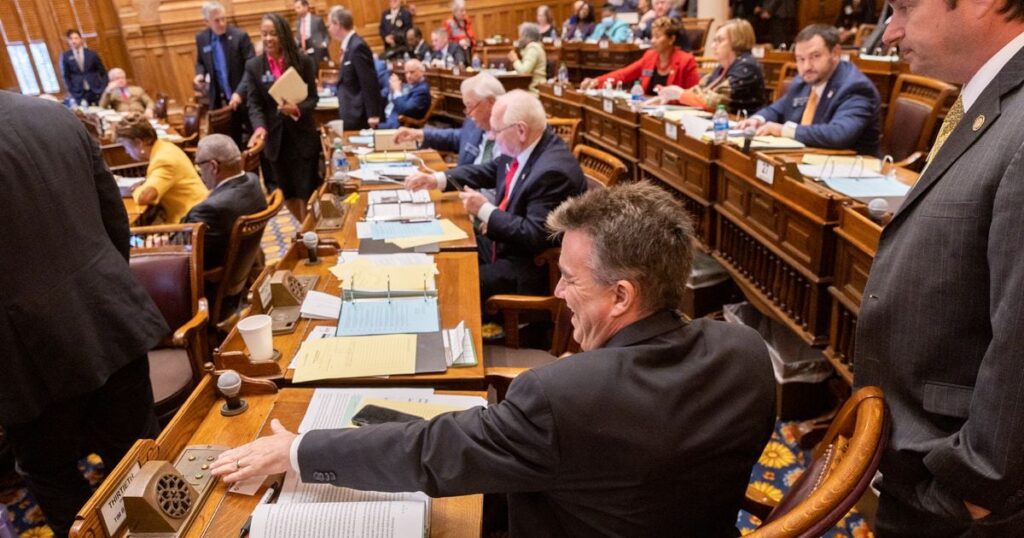Bills that are not passed by the deadline are unlikely to become law, but if the language is inserted into a bill that first passed the House or Senate, it could be reinstated later. The bill isn't truly dead until lawmakers leave the Capitol next month.
Below are some of the hottest bills likely to be voted on Thursday.
Republican lawmakers rushed to pass immigration legislation after a Venezuelan man who entered the United States illegally was charged with killing 22-year-old nursing student Laken Riley on the University of Georgia campus.
The bill that passed out of committee on Tuesday would restrict cities and counties from adopting policies that provide safe haven to people living in the country without legal permission.
The proposal, House Bill 1105, targets cities such as Athens, which have limited cooperation with U.S. Immigration and Customs Enforcement.
The bill would penalize sheriffs and jailers who refuse to cooperate with immigration authorities if the person in their custody is not a U.S. citizen.
Athens police said they check criminal records of people in their custody, but do not jail illegal immigrants if they have no other criminal history.
The Republican majority in the state Senate is poised to approve a proposal that would strengthen legal protections for religious people in Georgia, but gay rights groups oppose it.
The Religious Rights Act, Senate Bill 180, would limit the government's ability to pass or enforce laws that conflict with religious beliefs.
The bill is supported by conservative Christian groups. Georgia is one of only three states that has not enacted a statewide anti-discrimination law.
The Religious Rights Bill has been regularly considered since Gov. Nathan Deal vetoed the previous proposal in 2016. Gov. Brian Kemp said during his 2018 campaign that he intended to sign a religious rights bill that mirrored the language of federal law.
Thirty-four other states and the federal government already have religious rights laws.
The state Senate bill would eliminate state mandates for sex education in schools.
Under Senate Bill 532, schools can offer sex education beyond fifth grade, but only if parents opt in to their children. Currently, students learn about sex education unless their parents opt out. Sex education materials will also be subject to public review before being taught.
Another bill, Senate Bill 390, would prohibit public and school libraries from collaborating with the American Library Association, which recommends books about gender identity and racial bias.
The proposal follows laws in the past few years that limit classroom discussions about race, the inclusion of transgender athletes, and the types of books allowed in school libraries. A Cobb County teacher was fired last year for reading to fifth-grade students a book that questioned gender norms.
Georgia's famously generous film tax credit will be reduced in response to complaints about the flow of money from the state government to Hollywood, an estimated $1.35 billion this year alone.
The bill, House Bill 1180, would increase the minimum investment required to qualify for the film tax credit and limit the amount of tax credits that filmmakers can sell to third parties each year based on the size of the national budget. That will be the case. .
About 97% of Georgia's tax credits are sold by movie companies that pay very little in state taxes, and those companies sell the credits to Georgia taxpayers who owe the state money.
— Staff writers Michelle Baruchman, Maya T. Prabhu and Ty Tagami contributed to this article.
Crossover Day is the 28th day of the Georgia General Assembly's 40-day session. This is usually the deadline by which a bill must pass at least one chamber in order to become law.
You can follow the day's action at https://www.ajc.com/politics/.
You can also check the status of bills and resolutions on The Atlanta Journal-Constitution's Bill Tracker at ajc.com/bill-tracker.


